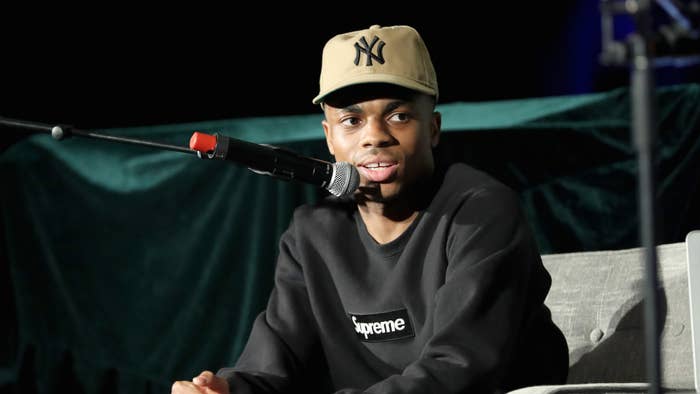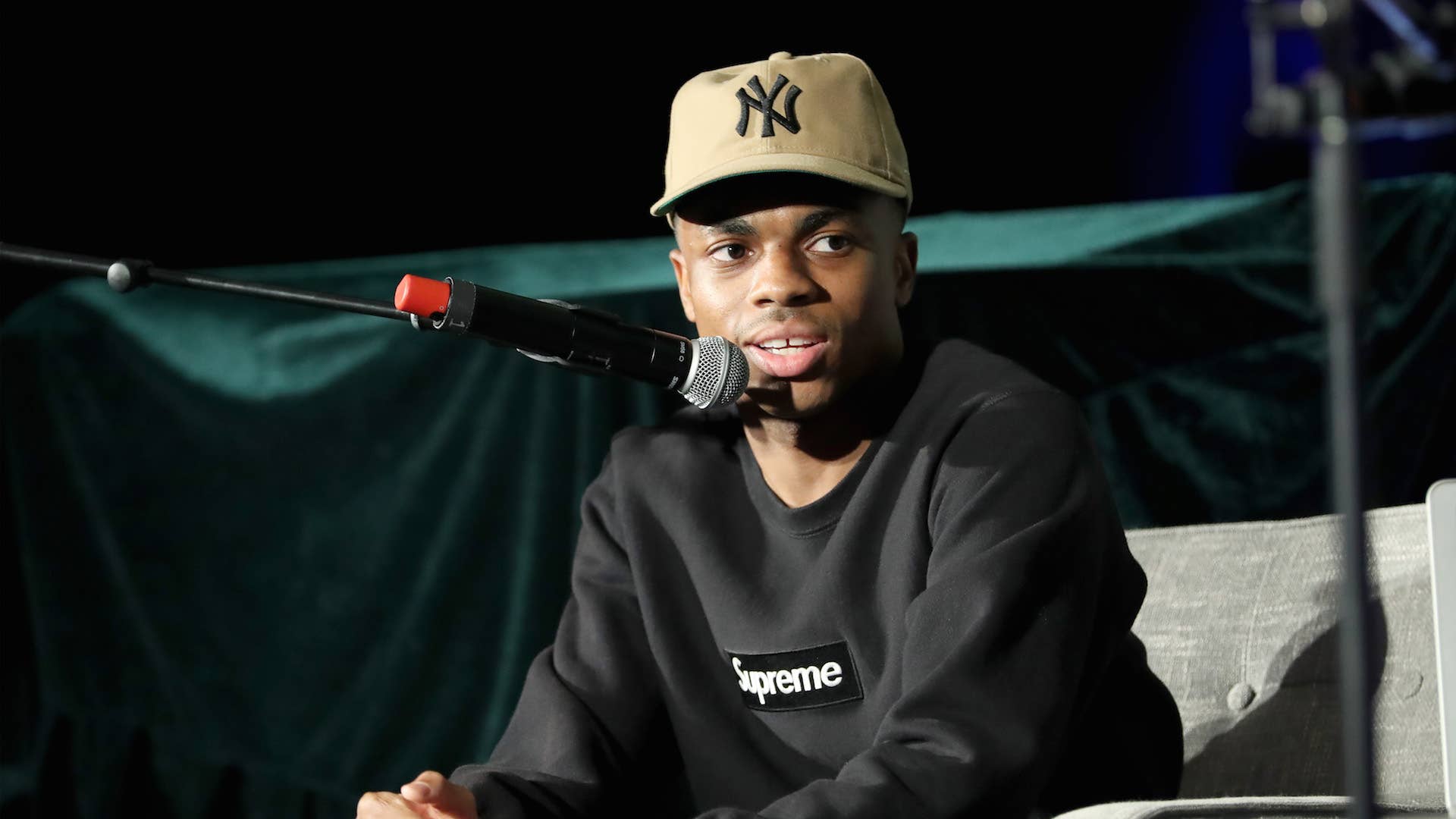
To the naked eye, Vince Staples and Nipsey Hussle had a lot in common. They were both young, Black men from the greater Los Angeles area who stood on the same side of the color line. This allowed them to craft music about their existence and hopes for the future. During a recent conversation with GQ and Bodega Boy, Desus Nice, Staples touched on these similarities while also detailing what set Nip apart.
“With Nipsey’s passing, that was huge—major—across the whole world. And you’re someone who comes from a similar background. You’re not Nipsey, but you’re a successful rapper. You still be out there. How does all of that make you feel?” Staples said.
Being “out there” ended up being Nipsey’s fatal flaw. Hussle made a point to represent Los Angeles’s Crenshaw District as well as use his rap money to re-invest in the community. Unfortunately, Hussle was killed in front of the strip mall he owned in his native neighborhood.
A lot of people would question why Nipsey continued to frequent this area after becoming a famous rapper. But to Staples, Hussle wasn’t just a recording artist. He was a political figure that needed to be around those he spoke for.
“If you look historically at people in leadership roles—especially leadership roles in Black communities, especially in urban communities—there’s no connection if you’re not physically there,” Staples explained. “From John Huggins and Bunchy Carter in Los Angeles to when you think about what Ralph Abernathy and Fred Hampton and all these people did from all the different places. Huey Newton, Angela Davis. People that have touched people. They had to touch people physically on a local level. And to me there’s no difference from these people and Nipsey Hussle. I mean, Nipsey Hussle is Gil Scott-Heron. Nipsey Hussle is James Baldwin. He hears these people that had a message.”
Hussle was known for wearing a solid gold Malcolm X chain. As Staples continued his objective look at Nipsey’s legacy, he draws comparisons between Hussle and X. Yet, he doesn’t view their stories as a cautionary tale. Instead, he thinks that their lives and deaths are inspiring in their own way.
“Crazy as it might seem, Black leadership is something that’s always different in hindsight,” he continued. “ I wasn’t there for Malcolm X. My mom, she’ll tell me about Black Panthers being in L.A. and Compton. She saw how things transitioned and how things turned out afterwards. … The end of the story is just as important as everything else. So I can’t say if it makes me feel any other way, except motivated and inspired, because, you know, Nipsey Hussle died doing what Nipsey did. It’s not like he died doing anything else. He died in that parking lot taking pictures with kids, giving them money.”
Along with putting Hussle’s legacy in context, he also revealed that he’s continuing his own path towards greatness by dropping two new projects. The self-titled, Vince Staples, and Ramona Park Broke My Heart albums will be his last projects on Def Jam before he heads over to Blacksmith Recordings which is a record label founded by his manager, Corey Smyth.

